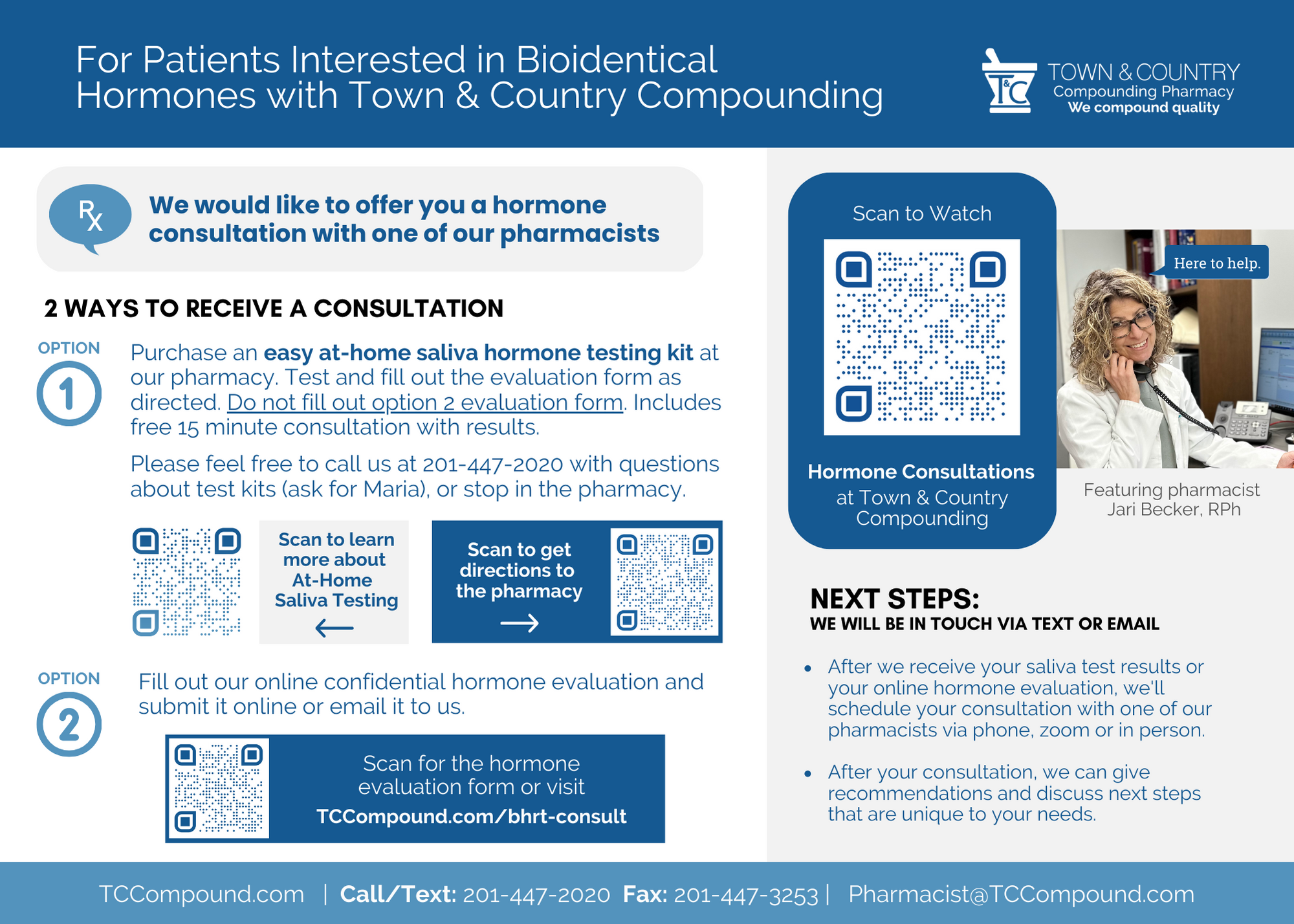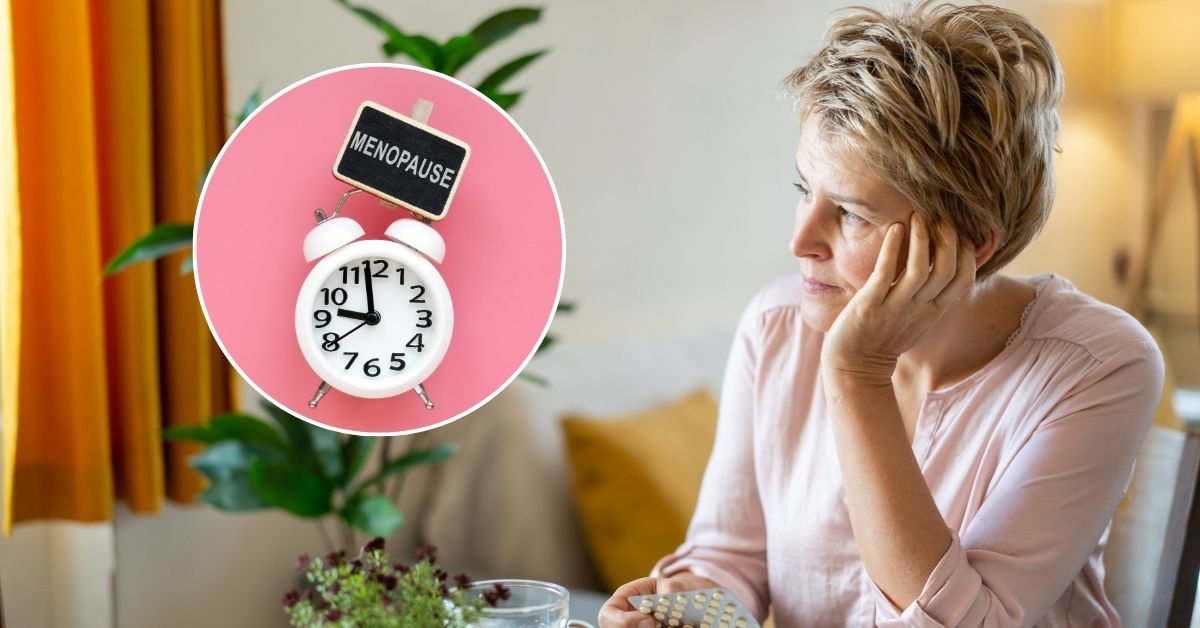Managing Menopause with the help of Town & Country Compounding’s resident Hormone Specialist, Jari Becker, RPh
Hormonal imbalances and menopause involve very complex changes in a woman's body
The balance of hormones like estrogen and progesterone can fluctuate significantly, leading to a wide range of physical and emotional symptoms. Since hormones can fluctuate wildly in the 10 years before menopause, it is difficult to pinpoint exactly what changes are causing what symptoms at what time. There are also other hormones that cause symptoms when levels decrease (or increase), such as testosterone, DHEA, cortisol, and thyroid.
Our very own “Hormone Specialist” Jari Becker, RPh discusses symptoms of hormonal imbalance related to menopause.
Each woman experiences and manages hormonal changes and menopause differently
Some women breeze through menopause with multiple bothersome symptoms while others may only have several bothersome symptoms for a short period of time. This makes managing menopause challenging for patients and practitioners.
Is this menopause?
Some women may actually not realize that the way they feel could be the beginning of menopause. They may not recognize or understand the symptoms they are experiencing as related to hormone imbalances or menopause. This could delay them seeking help and prolong misery at times.
Overlapping symptoms
The symptoms of hormone imbalances and menopause can overlap with other medical conditions. Identifying the root cause of a woman’s symptoms can be challenging for practitioners. It is necessary to take a holistic view of women’s health when managing menopause and hormone imbalances considering factors like lifestyle, diet, exercise, stress management, and mental health. Implementing comprehensive lifestyle changes can be challenging for many individuals.
Changing guidelines and varying medical opinions on therapies for managing menopause
Medical guidelines for managing menopause and hormone imbalances have changed, and opinions between practitioners vary. Opinions impact what therapies a patient is offered, or not. Many physicians will not offer HRT while others are very proactive about using hormones when levels are low or out of balance. Patients hear mixed messaging and are often left not knowing where to turn or what to do when their symptoms are negatively affecting their quality of life.
Therapies available for hormone imbalances and menopause will not work equally well for all women
Hormone replacement therapy (HRT), for example, has potential benefits and risks that need to be considered. Other factors such as lifestyle, nutritional supplements, and diet can also affect how a woman feels when hormone depletions or imbalances occur.
Stigma and taboos
While some women who are in their 40s or 50s may have ladies’ nights out that revolve around cocktails and “group complaining” about hot flashes, lack of sex drive, painful intercourse, and weight gain; this is probably not a norm in many cultures. Hormone-related issues, especially those associated with menopause, can carry stigma or be seen as taboo topics in some societies. This can discourage women from discussing their symptoms with others and seeking help.
Psychological and emotional factors
Hormone imbalances and menopause can cause significant psychological and emotional effects. Addressing these aspects, such as mood swings and depression, alongside physical symptoms can add complexity to the situation.
Women, Wellness and Wine: a fun discussion on women’s health
If this sounds like you or someone you know, you can join us at our next Women, Wellness, and Wine event. Let us help you in managing menopause and hormone imbalances.
Connect with experts and ask all of your burning questions about menopause.

Menopausal Support Supplements

How to Buy
Add to your Rx pickup or delivery order

